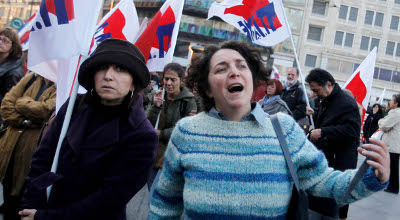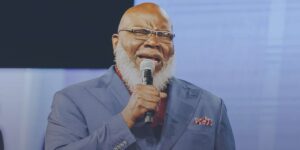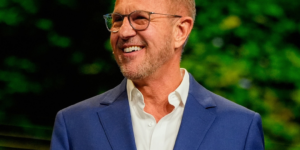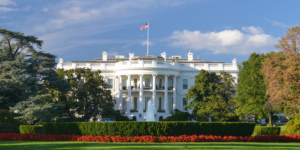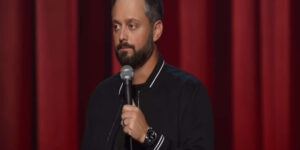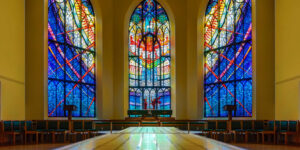Greek Financial Crisis Causes Ministries to Dig Deep
In an interview with OM Greece’s country leader, Kees den Toom, we learn about the current situation in Greece and Operation Mobilization’s response to it. From the Netherlands, Kees has been based with OM in Larissa, Greece, since 2000. Although Kees and his wife, Rahel, from Switzerland, initially planned to work amongst Albanian immigrants, they soon realised the need to invest into the local Greek Evangelical Church. In 2006, Kees was appointed elder of his local church. Their three children (10, seven and four years old) attend the local Greek school.
Kees, can you please summarize the current situation in Greece today?
Although the economic situation in Greece remains dire, political parties seek to gain power in the midst of the prevailing chaos. With every election, new people are appointed into government based on their political loyalties and less on their professional qualifications. Hardly anybody takes responsibility for their deeds, yet they are very easy to judge others by what he or she has or has not done.
The Euro helped develop some of the country’s infrastructure, but much was lost in other pockets. Corruption has become a way of life for many, although not all benefit from the system equally. And those who have been proven guilty remain unpunished, while their bill is still being paid by those of the lowest income (the rich have their assets in off-shore companies and foreign accounts). Personal relationships are crucial if problems are to be solved.
As long as people benefitted from the system, it was never questioned. People are now either very upset for fear of losing all their “rights”, inciting acts of violence. Others realise that measures need to be taken, but they remain hard to swallow as huge cuts are made to their incomes and pensions, and property taxes are introduced. The poor condition of social services and the corrupt juridical system only adds coal to the fire.
How is the local church responding to the current situation?
Ninety-eight percent of the population is Greek Orthodox, and the institutions of baptism, marriage and burial are still practiced as a means to attain salvation. In most cases, what is said and done in the church has hardly any relation to everyday life. Abortion rates are extremely high and one in four men visit brothels. Materialism has also become the god of many.
The evangelical community is very small, making up 0.2 percent of the population. The church in general is very fragmented and divided and was inward focused for many years. Some churches are starting to respond to the needs of the community with a deep commitment to shine God’s light in their neighbourhood and beyond. A revival is still needed in most denominations, not to mention a better understanding of what it means to live and work in unity.
We are excited to see more and more churches catching the vision to reach out to their neighbors, and more and more people understanding the need to change our way of “being church.” As the church’s income continues to shrink due to extreme economic pressure felt by many—especially those who have lost their jobs in the past months (and subsequently social benefits)—the needs of the church are growing.
What are the fears and hopes for the future?
Generally speaking, there is great unrest and fear for the future. Much heated discussion is placed on the current political and economic situation. Pessimism and even fatalism are emerging. Younger people are leaving the country in search of jobs. Again, the weakest are the most desperate as they struggle to find enough food to survive. Electricity bills and rent have not been paid for months. And this is only the beginning, many fear.
Also many immigrants think about leaving Greece, but it is very hard (especially for Albanians and others outside of the EU) if there is nothing to return to. There is not a lot of hope in the political system anymore, and as religion is often one of tradition, people don’t look to the church for solutions either.
How has the ministry of OM Greece changed as a result of the current situation?
As our society is shaken, OM Greece seeks to respond by sharing the message of hope through Christ, while meeting the basic needs of the most needy—the homeless, gypsies and immigrants. As the crisis is also a spiritual one, we are seeking to address this in our local church. Churches realize more and more that they need to reach out and yet often lack the necessary resources. People raise questions such as “Why do we exist as a church?,” “How should the church function?,” “What is our answer in this time of great turmoil?,” “How can we help our members that struggle to meet ends?”
With the breakdown of social services, we also see challenges and opportunities—the need for a place of refuge for battered women and their children, as well as feeding programs. We know that only Christ can bring restoration and healing to this country, and we need to share the message and biblical ethics to a society that neglected the church’s direction and authority a long time ago.
So yes, OM Greece has become more involved in aid projects, but we lack the capacity to respond to all the requests; for example, the needs of an Albanian gypsy group we work with have grown to an extent that even if we were to raise 1,000 Euro a month, their structural problems would remain unaddressed and ultimately nothing would change. Of course, we try to work as much as possible with the local church, but these are often small and challenged by the crisis themselves. With a small team of six adults, we need wisdom to know how to strengthen and challenge the church, while at the same time respond to the needs around us.
Please pray for the ministry of OM in Greece. Pray for wisdom as they minister in their local churches. Pray that the local churches will find ways to reach out to their neighbours in need and bring hope to the hopeless.



